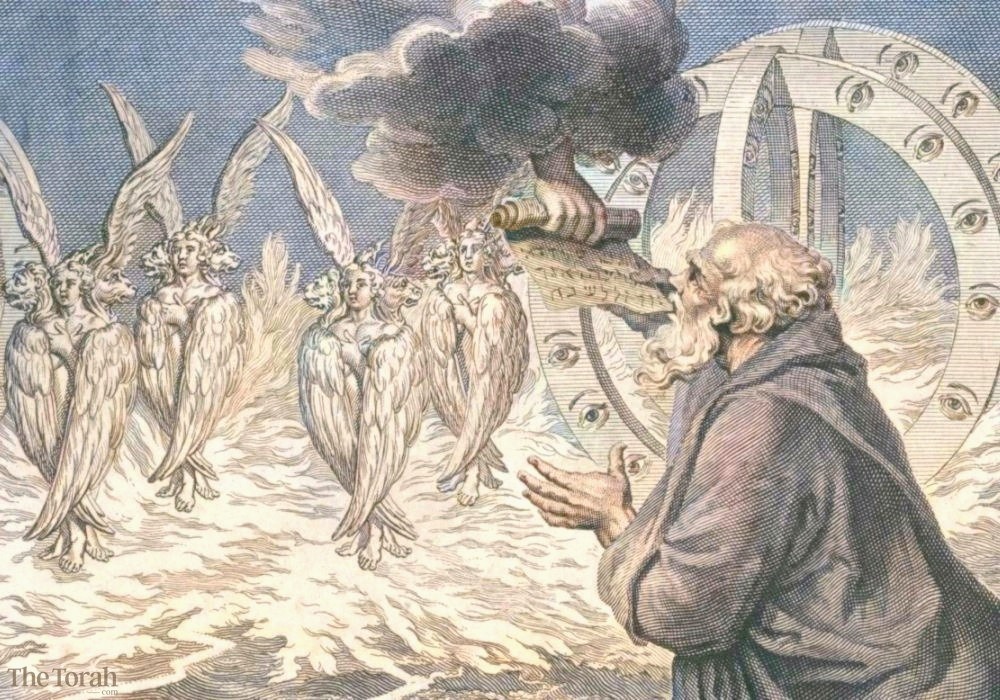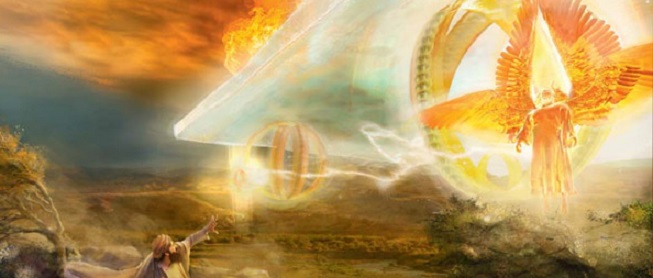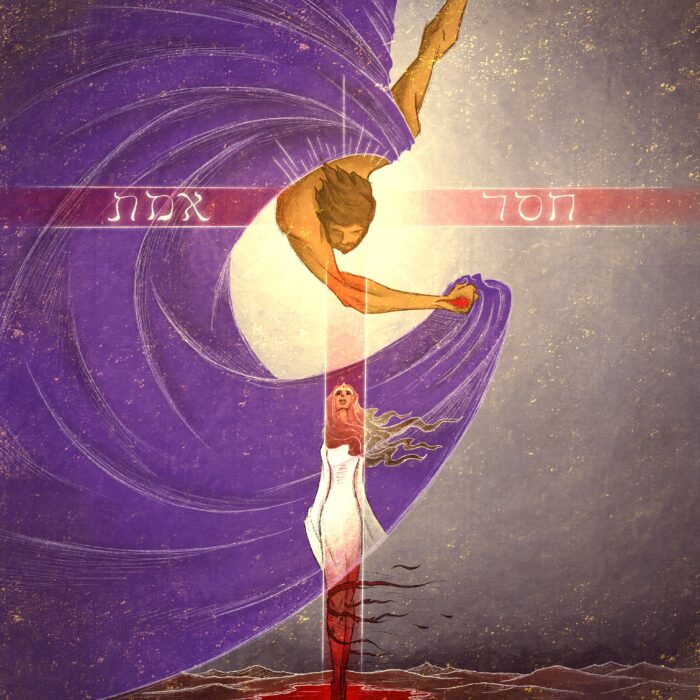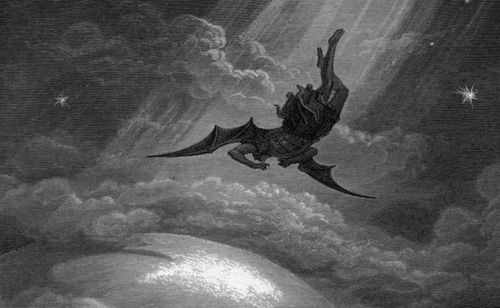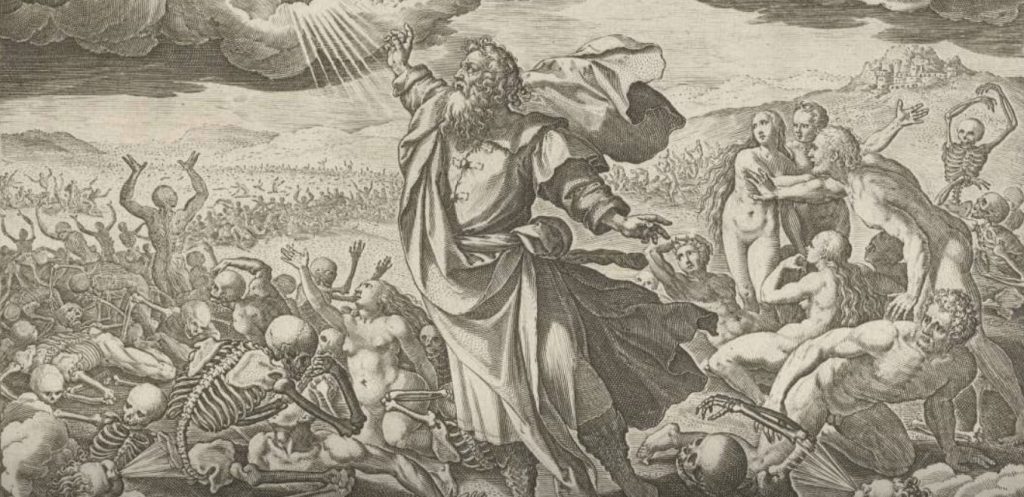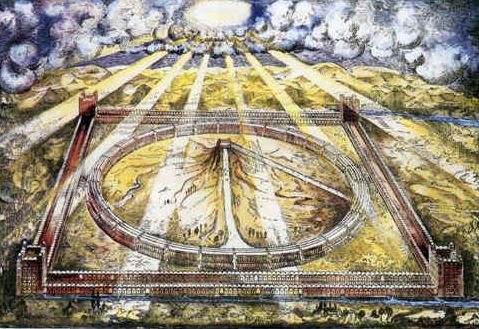In this study, we discuss how Ezekiel’s prophecies speak condemnation and hope into an exiled people and prefigured the coming of Jesus as the Messiah. As background for this study, I have used Origen of Alexandria’s Homilies on Ezekiel, The Holman Old Testament Commentary – Ezekiel, and the chapter on Ezekiel from James Kugel’s How to Read the Bible. This Epiphany study covers eight weeks.
(Epiphany 2014)
Ezekiel 1 – 1:1-3:15, pt.1
No Comments
The reason to read through Ezekiel during Epiphany is because both the prophet himself and his teachings prefigure the person and teachings of Jesus Christ.
Ezekiel 1 – 1:1-3:15, pt.2
No Comments
So then, by the river Chebar, Ezekiel saw the heavens opened when he was thirty years old. And the Lord Jesus Christ, “when he began he was about
thirty years old”, by the Jordan River, and “the heavens were opened”. And throughout the entire
prophecy of Ezekiel, he is called: “son of man.”
Ezekiel 2 – Ezek. 8-11, pt.1
No Comments
These four chapters are a microcosm of the Old Testament’s salvation history of sin (chapter 8), physical judgment (chapter 9), spiritual judgment (chapter 10), and the promise of restoration (chapter 11).
Ezekiel 2 – Ezek. 8-11, pt.2
No Comments
The idolatry witnessed by Ezekiel was the intentional divine worship of other things. Since we don’t offer incense to pagan deities anymore, how are modern idolatries, such as money, power, etc., similar to or different than the idolatries of Chapter 8?
Ezekiel 3 – Ezek. 13-15, pt.1
No Comments
As you read through these chapters, read them in light of Christ and his Church, and where and how false prophets and leaders in the Church arise and how they affect the Church of Christ.
Ezekiel 3 – Ezek. 13-15, pt.2
No Comments
This week we are looking at Ezekiel’s specific condemnation of false prophets and false leaders of the community, and how their errant leadership affects the community.
Ezekiel 4 – Ezek. 16-17, pt.1
No Comments
For Ezekiel, the source of Jerusalem’s adultery is her pride and self-reliance which caused her to ignore God and adopt the worship of the surrounding nations.
Ezekiel 4 – Ezek. 16-17, pt.2
No Comments
As do all the readings in Ezekiel, chapter 17 ends with a future Messianic hope, as set forth in the second parable, of God taking a tender sprig from the cedar and planting it high on a hill, so that it will bring forth good fruit and all will seek its shade.
Ezekiel 4 – Ezek. 16-17, pt.3
No Comments
One of the analogies Scripture uses is that Israel/Church is the Bride of God/Christ. We will begin our discussion this Tuesday by talking about what this analogy means.
Ezekiel 5 – Ezek. 26-28
No Comments
Think about whether Ezekiel’s prophecy against the King of Tyre in chapter 28 is directed against an historical figure or someone else when he describes the King as “the seal of perfection, full of wisdom and perfect in beauty. You were in Eden, the garden of God; . . . . You were anointed as a guardian cherub, for so I ordained you. . . .”
Ezekiel 6 – Ezek. 34
No Comments
After reading through Ezekiel 34, read through John 10:1-18, Luke 15:1-7, and Matthew 25:31-46 and see how Jesus applies Ezekiel’s prophecy to himself.
Ezekiel 7 – Ezek. 37, pt.1
No Comments
On a deeper level, however, this chapter speaks to the general resurrection of all of God’s people and the unification of the Kingdom of Heaven with both Jews and Gentiles under God’s Messiah.
Ezekiel 7 – Ezek. 37, pt.2
No Comments
In both Ezekiel’s prophecy and John’s Gospel, this Good Shepherd discourse (Ezek. 36, John 10) is followed by a discourse on the resurrection (Ezek. 37, John 11).
Ezekiel 8 – Ezek. 43, 44, 47
No Comments
When we began Ezekiel, the prophet is in exile sitting by the River Chebar and had a vision of the Glory of God leaving the Temple in Jerusalem. The readings this week open with the vision of a rebuilt and restored Temple and the return of the Glory of God to the Temple, filling it.

